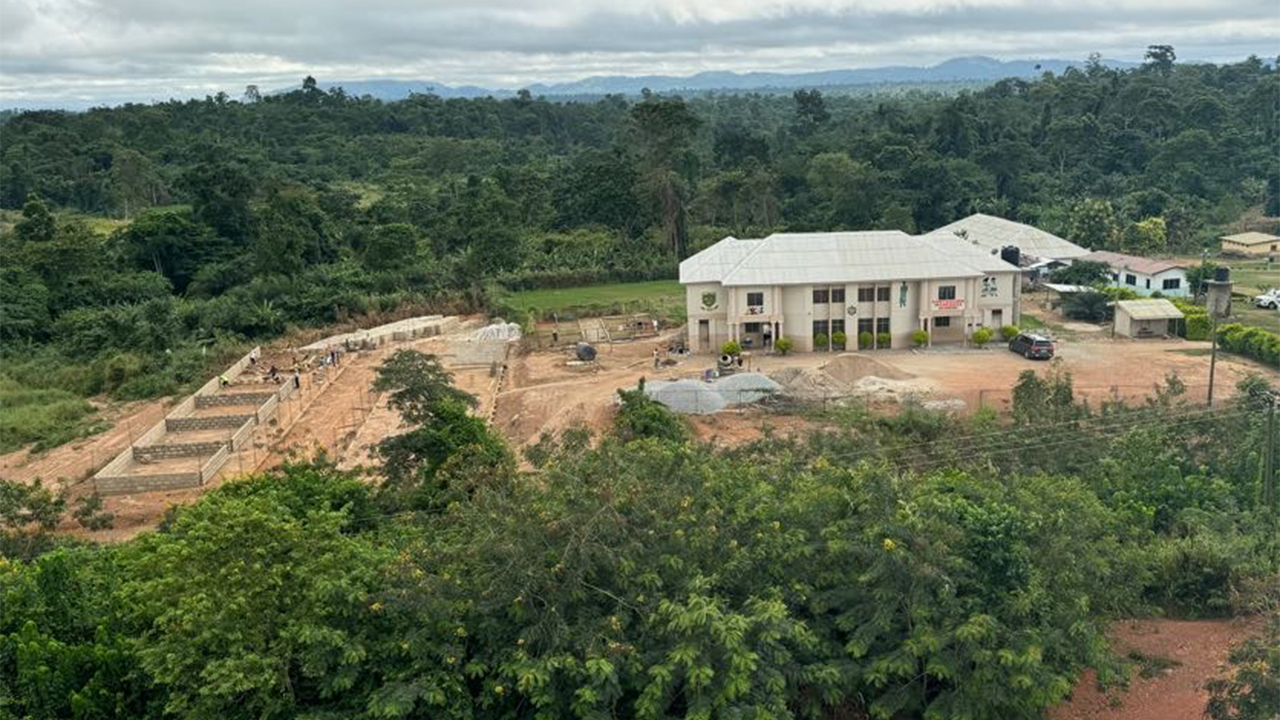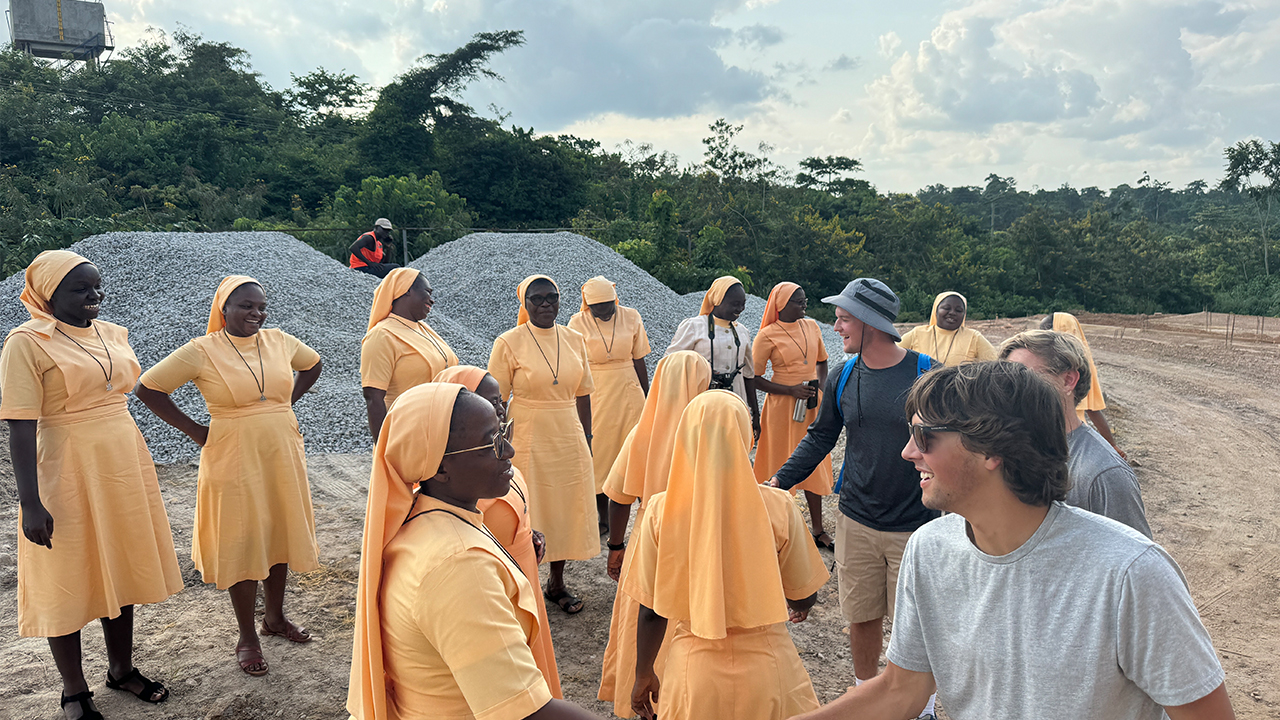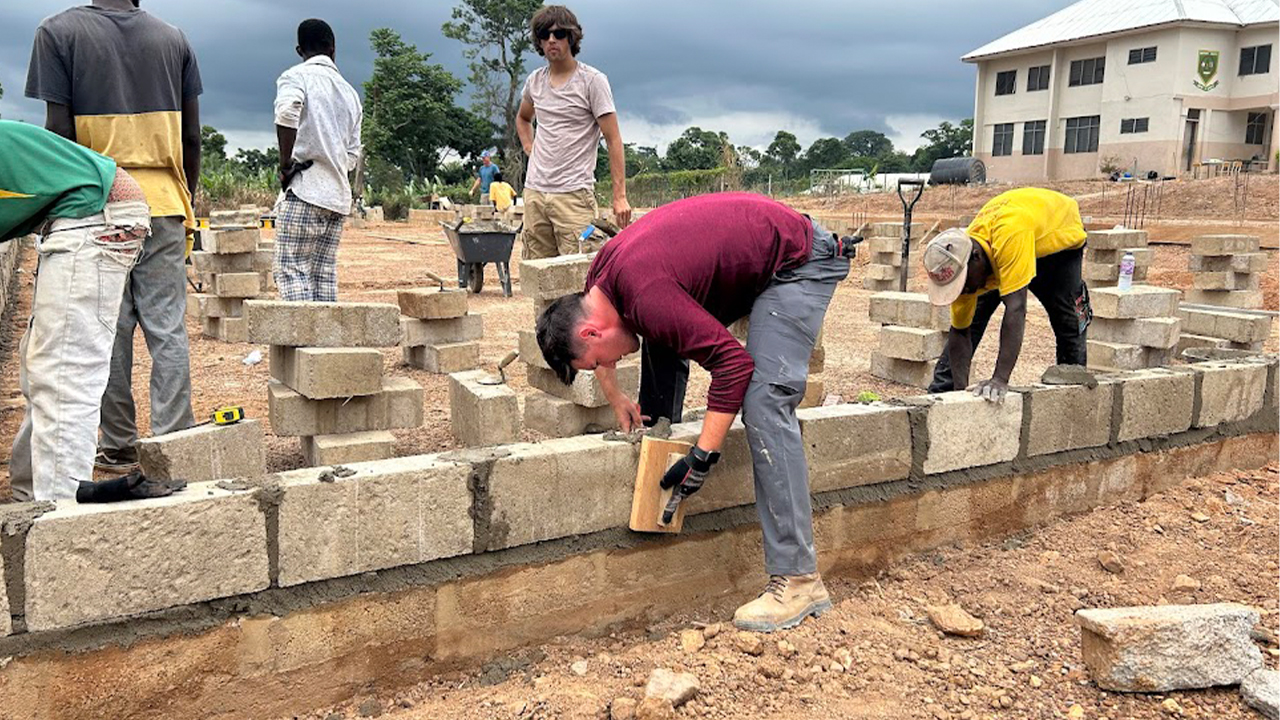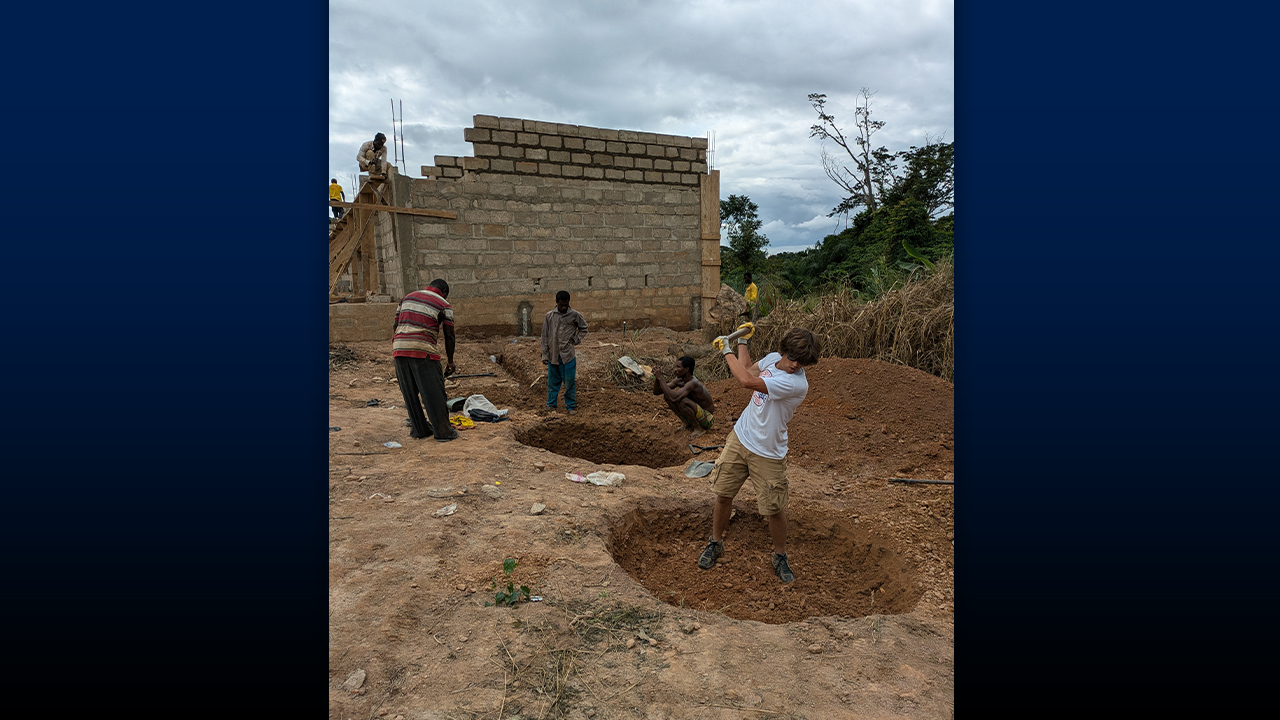






As students endure often challenging classes on campus, they may not immediately see the broader impact of their education and how it could transform communities and alter the course of an entire generation. Perhaps some students will never know. But that’s exactly what is happening with the University of Wisconsin-Platteville Engineers Without Borders Student Chapter after their work in Ghana.
"The late nights studying can be boring, but now I see my classes as more than just routine; I see a deeper purpose and a powerful goal,” said senior Patrick Dugan from Sussex, Wisconsin, who is graduating in May with a degree in civil engineering with an emphasis in structural engineering. “I had to experience this journey to truly grasp the significance of what I’m learning. It all came to life outside of the classroom.”
As part of the national Engineers Without Borders-USA network, the student chapter focuses on collaborating with communities to develop and deploy engineering solutions that address pressing local issues and meet essential needs. Currently, the students are dedicating their efforts to constructing a two-building junior high school in Adumasa, Ghana. Adumasa is a small village located in the Ashanti Region of Ghana, where many residents face economic challenges and live in conditions of relative poverty. This initiative will not just enhance educational opportunities but will transform the lives of the children who live there.
Dr. Austin Polebitski, professor of civil and environmental engineering at UW-Platteville, traveled to Ghana with the students. He emphasized the profound impact of the project.
"They have an elementary school, but students must wait for high school. In the interim, many children turn to illegal mining or face high teen pregnancy rates. Education is closely tied to family planning and other life outcomes," Polebitski explained. “By bridging the critical gap between elementary and high school education, our project stands to change the trajectory of countless young lives in Adumasa.”
The elementary school already has hundreds of students and children are kept as long as possible, but space is an issue. Managed by the FST Sisters, a dedicated religious organization, they hope to create a seamless educational pipeline that will not only facilitate students' progression to high school but also contribute to the community's prosperity and help alleviate poverty in the region.
"We toured parts of Adumasa and were struck by the profound poverty in these rural areas with limited infrastructure," said Polebitski. "For our team, this experience reinforced the importance of our mission and clarified the purpose of our work."
The students arrived with detailed plans and a clear vision of how things should proceed, but they quickly learned that adaptability is crucial, especially in a foreign country. They also joined the local workers for the difficult physical labor involved.
“We helped build the walls, lintels and bond beams for one of the two buildings that will become the middle school,” said student Ryan Varoski, a sophomore from Wauwatosa, Wisconsin, who is pursuing a major in civil engineering. “Sometimes we encountered problems with the construction and had to figure out the best solution on the spot. It wasn’t just about looking at plans; we were moving blocks, bricklaying and digging trenches for a septic tank system and distribution field.”
Students also developed management skills, particularly Dane Krolikowski, a civil engineering major from Reedsburg, Wisconsin, who aspires to become a project manager after he graduates next spring. He had to find a balance between being considerate and ensuring quality.
“I have no doubt that the workers there could build this by themselves, but because we designed the school according to U.S. standards, construction had to be done differently than it typically is there,” said Krolikowski. “I found it challenging to instruct the workers to adjust the rebar placement without coming across as bossy or rude. I wanted to ensure the building was constructed safely and according to plan but conveying that in a firm yet respectful manner was difficult for me.”
While working side by side with the locals, the students were deeply moved by the hardships they faced and gained significant insights from their experiences.
“Staying in Ghana made me realize how much I take things for granted,” Krolikowski reflected. “The local workers were doing some of the hardest labor I’ve ever seen, and they earn only about 100 cedis per day (equivalent to about seven U.S. dollars). Our meals at the hotel cost just under that amount, highlighting how underpaid they are.”
The workers also slept on-site at the existing school. Despite the challenges, Ghanaians proved to be some of the happiest and most welcoming people the students had ever met. Dugan returned home with an empty suitcase because the crew asked him for his clothes, and he gladly obliged. Each student was affected by this experience in different ways.
“The most challenging part was the labor and trying to keep up with the workers, who could work all day with barely any water, while I needed to drink every 30 minutes,” Varoski shared. “The most rewarding aspect was the sense of accomplishment from what we achieved, especially since we initially thought we wouldn’t get that far. It gave me a new perspective on how people live their lives. Although most of my time was spent in Africa, we had layovers in Paris and Amsterdam, which highlighted the stark differences in lifestyle compared to the US.”
As the students prepared to leave, they knew that one of the two buildings they worked on would be used immediately as a middle school, even without a roof.
“While we were there, we made one building usable enough that one of the sisters told us she is leading her first middle school class right now!” Polebitski exclaimed. “Sister Veronica told me, ‘I don’t care if there’s no roof, we will figure it out.’”
It struck the students that although the building still lacked a roof, the sisters were thrilled to start teaching there.
“The worst schools in the United States at least have roofs,” mused Dugan. “For the sisters to appreciate this so much is incredibly humbling. That’s why we were there.”
The Platteville chapter plans to return in January to place a roof on that building and they expect to complete the second building next August.
"What a fantastic way to give back skills and it’s a meaningful cultural exchange for both sides,” said Polebitski. “They want to learn about life in the United States, and we have our own perceptions as well. It’s wonderful to break down those barriers and realize that, at our core, we’re all human, striving to do good and help one another."
This project is more than just a construction effort; it is a beacon of hope and opportunity. By providing a pathway to continued education, the UW-Platteville engineering students are not only addressing immediate educational needs but are also investing in the long-term well-being of the community. Their work is creating a ripple effect, empowering young students in Adumasa to imagine brighter futures.
“Traveling to Africa with the Platteville chapter of Engineers Without Borders offers our students a transformative experience that extends beyond campus," said Dr. Christina Curras, chair, Department of Civil and Environmental Engineering. "This journey not only showcases the potential of their degrees but also inspires them to see the lives they can impact with their expertise and hard work.”
Through these efforts, the UW-Platteville Engineers Without Borders is indeed changing the course of an entire generation in Ghana, demonstrating how education can be a powerful tool for social transformation.
For information and how to donate to UW-Platteville Engineers Without Borders Student Chapter, visit UW-Platteville Engineers Without Borders